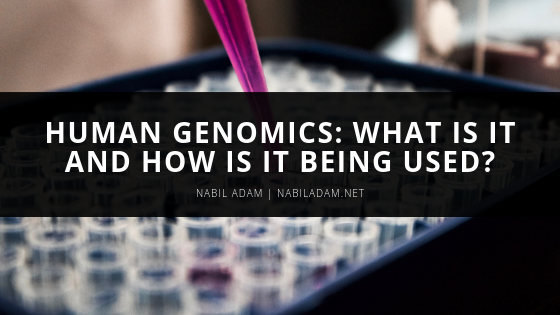Gene therapy, genetic testing, do-it-yourself biology kits; genomics has become a hot commodity around the world as of late. Society is interested in finding out their ancestry, finding how and if they’re likely to acquire diseases, among other gene-related information. But what exactly is genomics? And how are companies taking advantage of it?
At a glance, genomics iis a field of biology which focuses on the structure, function, evolution, mapping and editing of genomes, which is an organism’s complete set of DNA. The difference between this and genetics is that genetics is the study of individual genes and how they play a role in inheritance, whereas genomics is about the collective characterization and quantification of all of an organism’s genes and their interrelations and influence on the organism. It’s had great strides for all sorts of things, such as medicine, synthetic biology, and conservation.
With all of the advances that genomics has had, it’s become relatively cheap to read complete genomes. This has allowed many companies to take advantage of the opportunity and in a multitude of ways. Gene therapy has blown up lately, which allows companies to edit defective genes of patients. Just recently, Google also decided to dip its hands into gene therapy. Google and three other funds launched Verve Therapeutics, who aims to develop a gene therapy that should lower circulating levels of bad cholesterol for life after one session, which could lower the chances of heart disease.
Another big hit in genomics is genetic testing. This is where companies will ask a client to send a saliva sample, from which they’ll extract data regarding several topics including what an individual’s diet should consist of or what their proneness to a certain disease is. An issue with this is that some companies will sell their client’s genetic information to pharmaceutical companies. These companies use that information to research a large amount of genetic data.
There are other companies that have sprung up to combat the competition that sells their clients data. These companies give the general public the chance to sell their DNA via blockchain, where they then receive a form of cryptocurrency known as a DNA token in exchange for selling their own genetic information online. Other tech companies have also taken advantage of the business of genomics, such as Apple and Google, offering cloud services to store all of the genetic data.
While there may be some ethical and legal issues to consider when it comes to human genomics, it’s great to see so many people interested in it. There’s a lot of potential for genomics to thrive and develop as long as it’s done responsibly.

